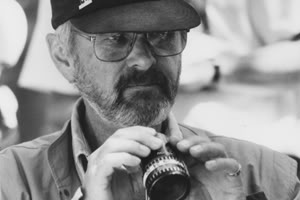A Quest for Peace: Jesus Christ Superstar
V. Kibbutz Sasa
VI. Jesus Christ Superstar
VII. Christian
VIII. Kingdom in Israel
IX. The Second Coming
VI. Jesus Christ Superstar
VII. Christian
VIII. Kingdom in Israel
IX. The Second Coming
I departed Kibbutz Sasa for the set of Jesus Christ Superstar filming on location in Israel. I traveled to the hotel where the cast of Jesus Christ Superstar stayed, there signing up as an extra. Taking part in the filming of the movie proved a monumental transformational experience for me and many others who took part in the movie.
The movie had been filmed out of sequence. When I arrived, the casting crew assigned me to be a stand in for Caiaphas. I had a memorable time during and in between shoots talking with Bob Bingham (Caiaphas) and Kurt Vaghjiian (Annas). I found everyone in the cast approachable. Even with larger crowd scenes, we really never numbered more than 200 or so. Usually more like 50. So I had lots of opportunities to talk and share time with many people.
During that first scene taken in the desert, far from any towns, Caiaphas and Annas, along with other priests, stood on a scaffolding in a remarkably creative set. They looked like vultures; so did I when wearing the stand in black robe of Caiaphas. During that day, and a few following, we shot This Jesus Must Die: Entry to Jerusalem. I played a follower of Jesus as he came into Jerusalem, too. As I recall, during that time we shot the triumphant entry of Jesus into Jerusalem, Hossana.
I next watched the filming of Jesus brought to Herod in the dance scene at the Dead Sea: Herod at Dead Sea. I got the call to take part in the dance scene Simon Zealotes Jesus Christ Superstar (HD). We took part in the filming of that scene on a desert floor in well over 100 degree heat. Yet none of us seemed to mind.
I had a number of memorable experiences while waiting on the set. On one occasion I happened to be sitting next to Yvonne Elliman who played Mary Magdalene. We talked about why each of us played in the movie. She said that she planned to use the money she earned to buy a farm for her retirement, many years in the future. I told her that I took part as a way to find the truth, as a part of my quest to find a way people can live together peacefully. She was a lovely and dear person.
Another time I stood near a canyon drop off admiring the awesome scenery. Ted Neeley, who played Jesus Christ, approached me. We had a lively discussion about his playing Jesus and the experience of doing that. I recall his intense sincerity and good heartedness. Ted had become Jesus. I felt amazed by his humility. I merely acted as an extra, a nobody in most eyes, and he treated me as the most important person on the set. I felt quite close to him during the filming after that experience in scenes including Trial before Pilate, Temple Money Changers and Valley of the Lepers, Crucifixion scene, Retreat from the Hill and On the Bus.
Each of those scenes had a powerful impact on me. Most of all, the Crucifixion scene. I had been asked to stand by in case needed. One of the lead actors came down ill that morning and I got the nod to stand in with a beautiful black actress whose name I forgot. I felt anxious. She saw that and said: "This is simple. Just image that the person that you love most in the world is on the cross." The first take, I imagined my dad on the cross. The second take I imaged my brother, Marc. By the second take I had heart felt tears.
For the third take I thought: Who is that really on the cross? It is everyone who has tried to do good. They are killed. I thought of the Kennedy's and Martin Luther King. I then had the realization that the person on the cross is me! With that realization, I experienced a flood of tears. In a very real way, we are all Christ on the cross.
Following Jesus' death, a remarkable natural phenomena happened. Although we filmed in mid-day, dark clouds blocked the sun. The scene director called for us all to slowly turn from the cross and walk off the hill. As we walked, all of us, without cue, turned back toward the cross. A profound sense of loss and despair pervaded the cast. As we walked off the set, we turned back two more times without cue. The hours following the filming hardly a word passed among any of the cast. At the hotel that night, I happened to meet Norman Jewison in the bar; all we could do for a greeting was shake our heads and exchange something like "that's heavy."
The experience of taking part in the filming of Jesus Christ Superstar stands as a turning point experience in my life. Almost none of us had been Christians at the beginning of the filming. Many of us became born again Christians during or just after the movie filming. I became a Christian shortly after the filming finished.
Jesus Christ Superstar lyrics
(Continued)







































